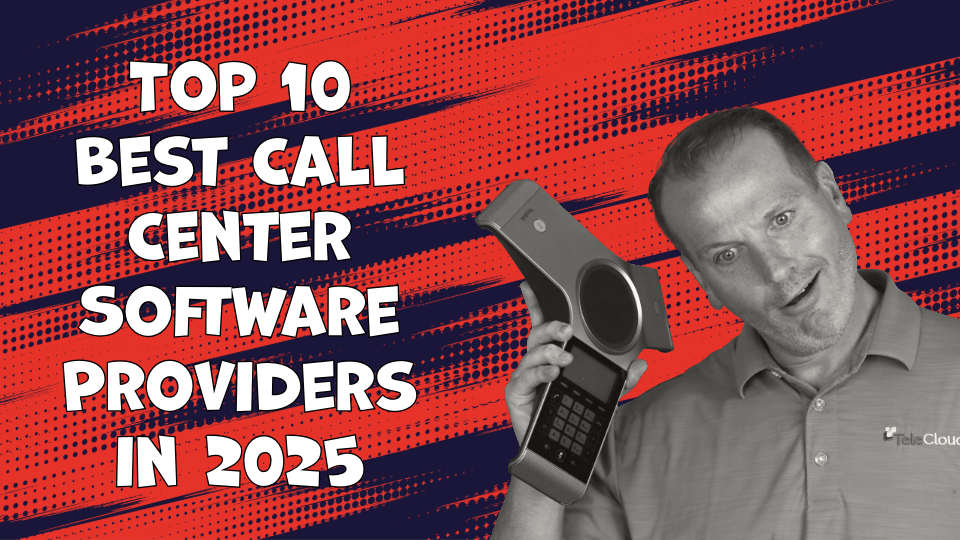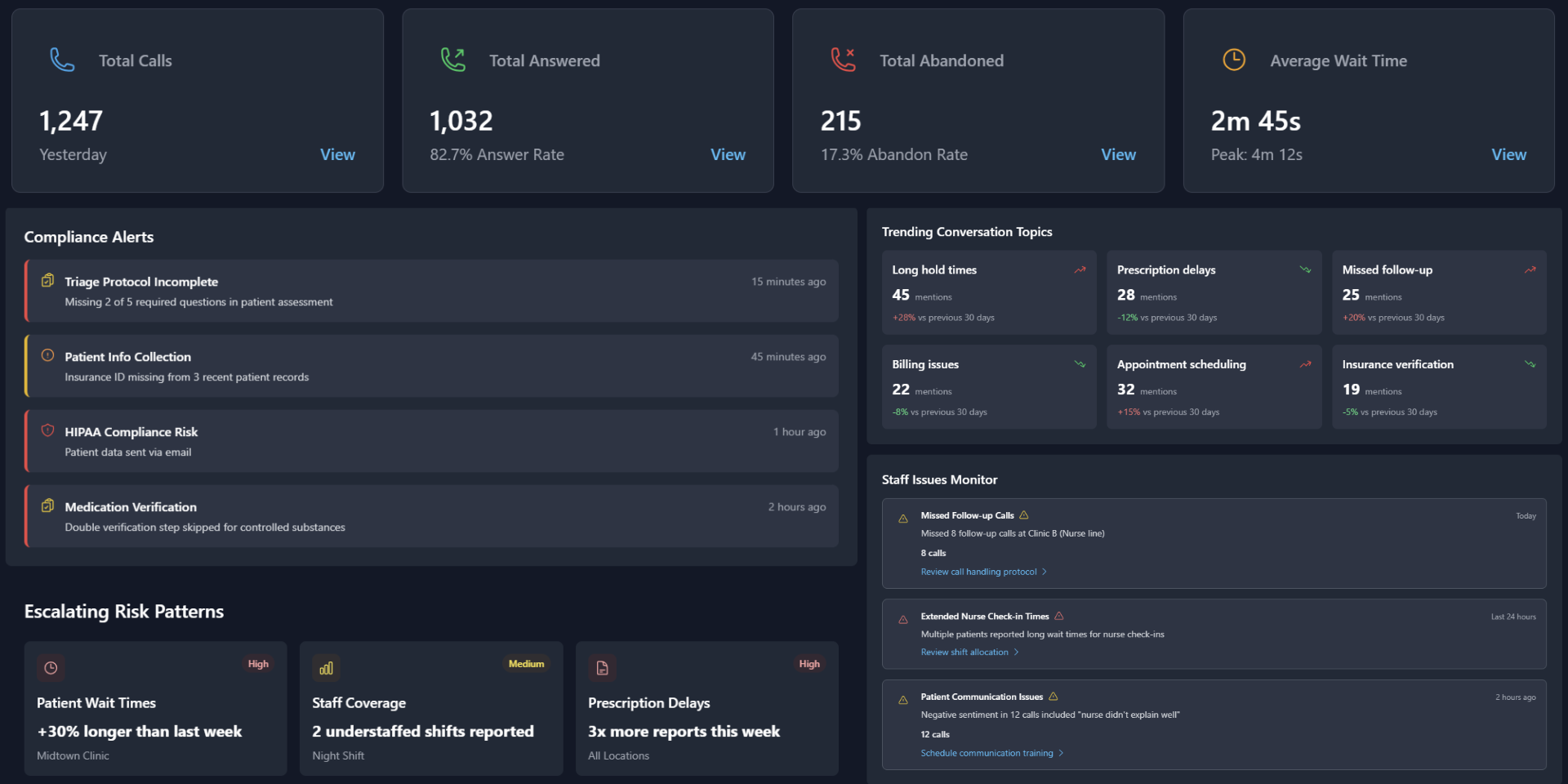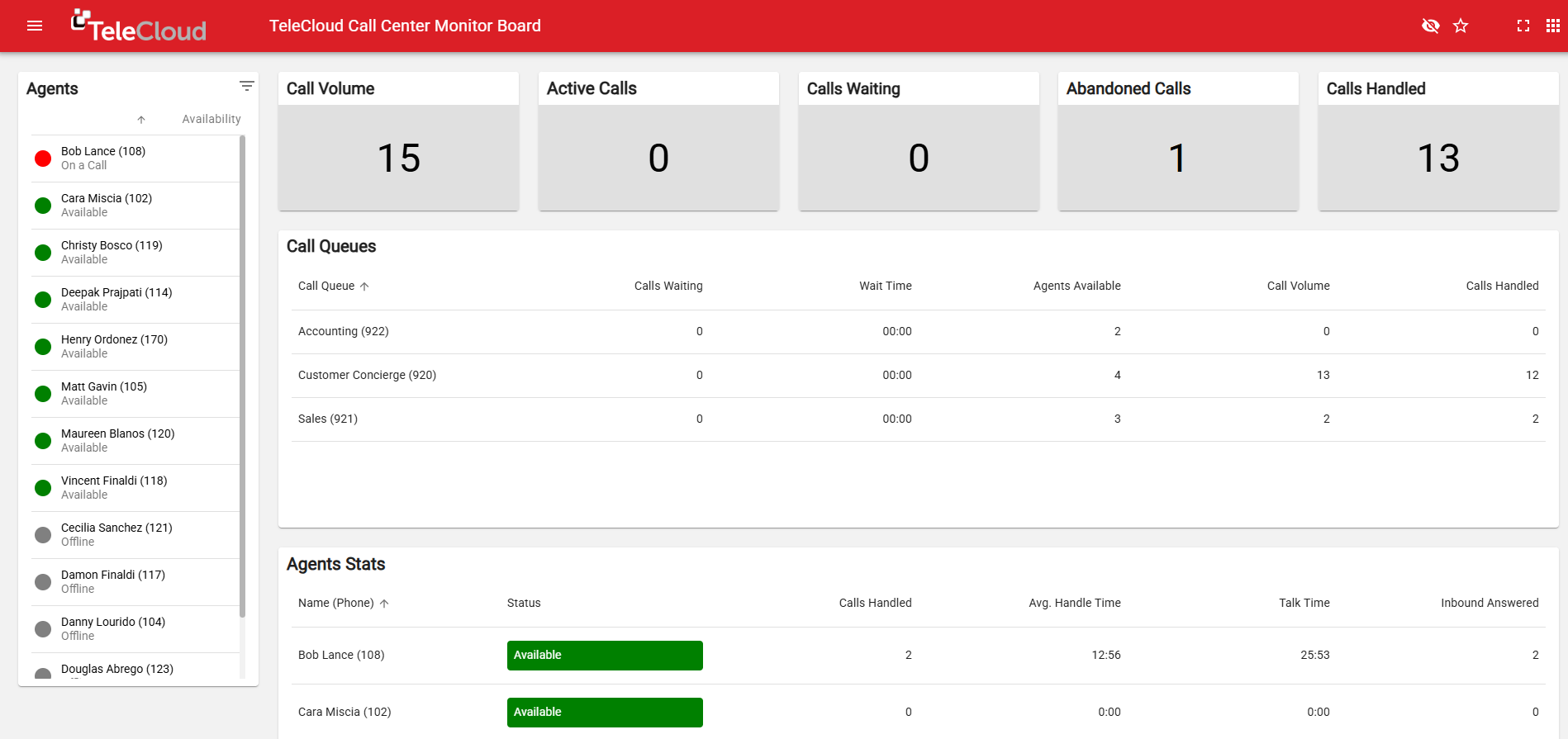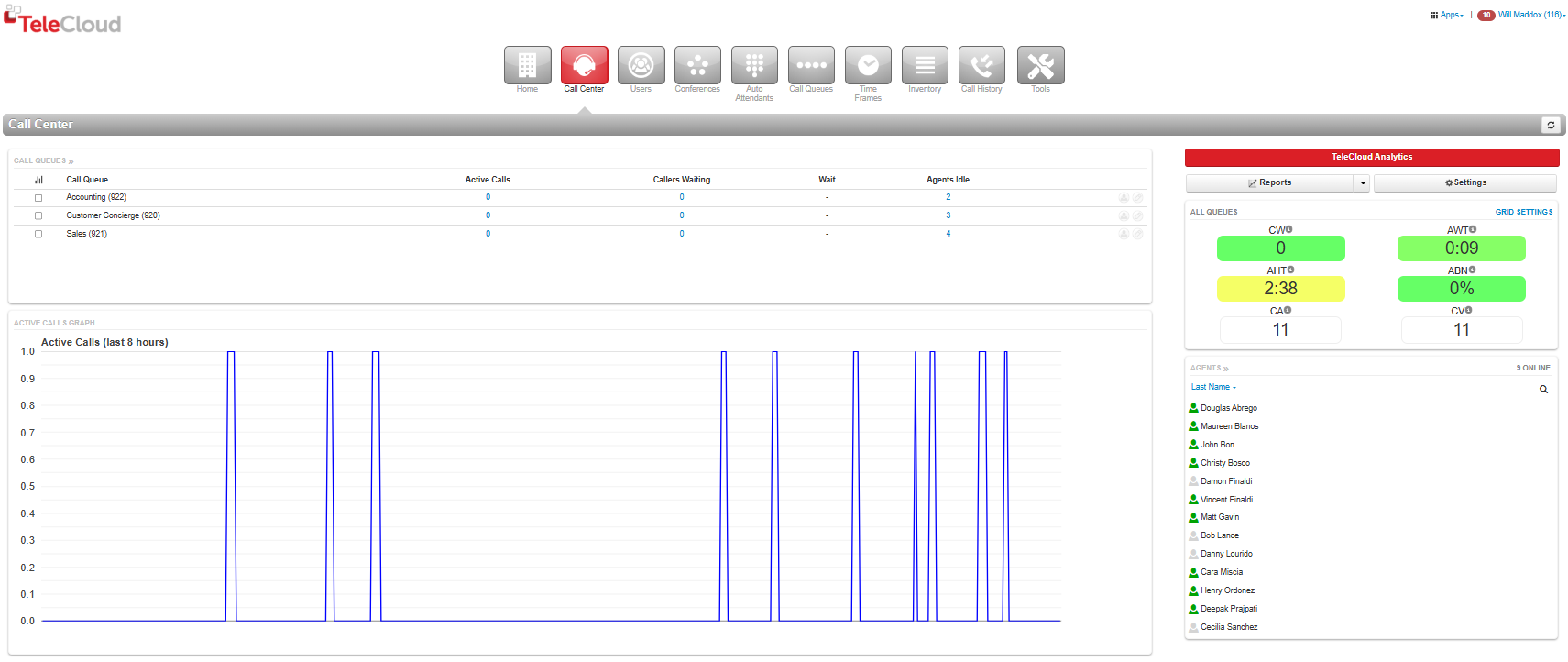Does My Business Need Call Center Software?
Updated: July 2nd, 2025 | Published: September 5th, 2017
4 min read

In a world where every customer touchpoint shapes your brand, effective call management isn’t optional, it’s essential. We’ve worked with hundreds of businesses across industries, helping them shift from reactive phone support to intelligent, responsive customer engagement. And we’ve seen firsthand how the right technology can transform chaotic call handling into a seamless, revenue-generating process.
If your team is overwhelmed, your calls are going unanswered, or your customers are voicing frustrations, you’re not alone, and there’s a better way.
Do any of these sound familiar?
- Are calls frequently missed or sent to voicemail during business hours?
- Are front-desk staff juggling phones, walk-ins, and admin tasks all at once?
- Are you hiring more people just to manage inbound call flow?
- Are you losing business to competitors simply because customers can’t get through?
If so, you may be outgrowing your current system.
In this guide, we’ll walk you through how modern call center software works, who it’s for, and exactly how it can solve your most pressing communication challenges, from staffing to customer satisfaction to bottom-line growth.
What Is Modern Call Center Software?
Gone are the days when "call centers" meant rows of headsets and high-stress environments. Today’s contact center solutions unify communication across voice, email, SMS, chat, and social media, providing real-time dashboards, AI-powered routing, and deep call analytics.
This software empowers businesses to:
- Route calls based on agent availability, skillset, or priority status
- Provide callback options during high-traffic times
- Track and measure every customer interaction
- Integrate with CRMs for more personalized conversations
Modern call center platforms turn every call into a strategic customer experience touchpoint.
How Can Call Center Software Benefit Your Business?
 1. Real-Time Problem Solving
1. Real-Time Problem Solving
Traditional reporting is retrospective, telling you what went wrong after the fact. Real-time dashboards in modern call center platforms allow you to intervene as issues arise.
Example: A customer waiting on hold for over a minute triggers a dashboard alert. A supervisor can immediately redirect that call to an available team member or offer a callback, preventing a poor experience before it happens.
You can also:
- Monitor call queues live
- Reassign agents dynamically
- Set service-level thresholds (e.g., max hold time)
- Customize alerts for different departments
This agility reduces customer frustration and boosts your reputation for responsiveness.
2. Comprehensive Metrics Tracking
Want to make smarter staffing and service decisions? Call center software delivers the data you need:
- Inbound and outbound call volumes
- Missed and answered calls
- Longest and average hold times
- Abandonment rates (calls dropped before reaching an agent)
- Voicemail volume and responsiveness
With this data, you can:
- Identify peak times and adjust coverage accordingly
- Spot service gaps or bottlenecks
- Reward top-performing agents with performance-based insights
- Set SLAs (service level agreements) and track compliance
Dashboards can be customized and color-coded, highlighting urgent calls and surfacing actionable insights that keep service levels high.
3. Enhanced Customer Service Leading to Increased Revenue
Every unanswered call could be a missed opportunity, whether it's a new sales lead, a returning customer, or an urgent support request. Contact center technology ensures:
- Every call is either answered or followed up quickly
- Clients get routed to the right person the first time
- Callbacks can be automatically scheduled during busy times
This responsiveness leads to better customer satisfaction, repeat business, and more word-of-mouth referrals, all of which contribute to increased revenue.
In industries like healthcare, home services, or law, where a missed call often means a missed client, this can have a direct and measurable impact on your bottom line.
4. Managing Unpredictable Call Volumes
Many businesses experience unpredictable spikes in call volume, lunch rushes, post-holiday service inquiries, or seasonal surges. Instead of overstaffing to prepare for “just in case” moments, call center software lets you manage dynamically:
- Monitor live queues and reallocate staff quickly
- Use overflow routing to direct calls to backup teams
- Offer intelligent self-service or callback features to reduce queue pressure
This keeps operational costs down while ensuring a consistent customer experience, even during unexpected peaks.
5. Improved Training and Quality Assurance
Training new employees or ensuring consistent service across locations is easier with call center software. Key features include:
- Call recording and searchable archives for reviewing real calls
- Whisper coaching (managers can advise agents during live calls without the caller hearing)
- Call scoring and tagging for quality reviews
- Real-time monitoring to provide on-the-spot feedback
These tools help you build a high-performing team that delivers consistent, high-quality interactions, whether you're onboarding new staff or refining your service protocols.
Is Your Business a Good Fit for Call Center Software?
If you manage a steady volume of inbound calls or multiple customer communication channels, contact center solutions can dramatically boost your efficiency and customer satisfaction.
Industries that see the most benefit include:
- Medical and dental offices with appointment-heavy workflows
- HVAC, plumbing, and service trades coordinating field visits
- Inside sales teams managing lead follow-up and outbound prospecting
- Multi-location businesses unifying customer support or dispatch
Rule of thumb: If you have four or more people regularly handling calls, it's worth exploring a more intelligent communication system.
How Can You Implement Call Center Software?
Depending on your current setup, there are two main approaches:
- Replace Your Current System with a Cloud-Based VoIP Solution
- Ideal for businesses ready to modernize their communications
- Includes built-in call center features like call queuing, routing, voicemail-to-email, analytics, etc.
- Scales easily as you grow
- Add Call Center Software to Your Existing Phone System
- Best for companies with complex setups or on-prem systems they can’t yet replace
- May involve third-party integration and custom workflows
Either option provides access to powerful tools, and today, these tools are far more affordable and user-friendly than they were even five years ago. Businesses with as few as 5–10 employees can now implement enterprise-grade solutions without enterprise-level budgets.
Ready to Elevate Your Customer Experience?
Your customers don’t just expect a response; they expect the right response, quickly and consistently. If you’re still relying on outdated phone systems or scattered communication channels, you’re leaving money and loyalty on the table.
Call center software enables you to transform every call into an opportunity for service excellence and business growth. It gives you control, visibility, and agility all in real time.
You don’t have to settle for missed calls, frustrated staff, or inconsistent service. Intelligent communication systems are now within reach for businesses of all sizes.
Schedule a free discovery call with one of our communication specialists. We’ll help you assess your current setup and build a step-by-step plan for smarter, more profitable customer conversations.
Call Center vs Contact Center Guide
 By Vincent Finaldi
By Vincent Finaldi
Vice-President, TeleCloud
E-mail: vin@telecloud.net | Direct Line: (908) 378-1218
What brings me satisfaction is meeting with New Jersey–based businesses and genuinely helping them solve communication and business problems. As someone who has lived in New Jersey my entire life, I love working and playing here. I live in Morristown with my wife, Lisa, and root for the New York Giants.
vin@telecloud.net OR call/text 908-378-1218


















